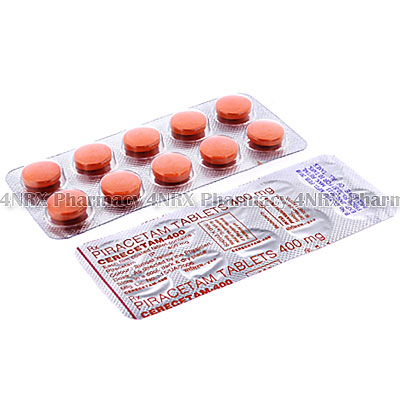 |
Home  Neurological Health Neurological Health  Cerecetam (Piracetam) Cerecetam (Piracetam) |
|
|||||||||
|
|
Cerecetam (Piracetam)
What is Cerecetam (Piracetam) used for? Cerecetam (Piracetam) is an oral nootropic with cognitive benefits commonly used to treat patients suffering from Alzheimer's disease. The medication operates by improving memory, concentration, and slowing deterioration of the brain. Your physician may also prescribe it to treat other unlisted conditions. How should I use Cerecetam (Piracetam)? Cerecetam (Piracetam) is normally administered once daily at a dosage of one tablet, but your individual directions will be determined by your physician after observing your current health condition and the severity of your symptoms. These doses should be swallowed whole and unaltered along with a large glass of water. Do not split, chew, or crush the tablets before use to avoid unintentionally destroying or altering the effects of their contents. Ask your physician any questions you have about using the medication to ensure the correct application. What are the side effects of Cerecetam (Piracetam)? Side effects that may occur while using Cerecetam (Piracetam) include:
Immediately inform your physician about any other unusual symptoms you encounter that are intense or worrying being especially cautious about signs of an allergic reaction such as hives, swelling, or trouble breathing. These may require lower doses, reduced application frequency, or emergency medical attention in serious cases. Please Note Before using Cerecetam (Piracetam) it is important to inform your physician if you have reduced liver or kidney function. You are also recommended to disclose if you have any other chronic health conditions that may cause unexpected problems during treatment. Strictly follow all instructions provided to you by your physician or pharmacist while using Cerecetam (Piracetam). Optimum and safe dosage can differ based on the patient and the condition being treated. As this medication may be unsafe for certain patients, it is essential you always inform your physician if you are pregnant or breastfeeding, as well as if you have any allergies, other illnesses, or ongoing health conditions, and if you are taking any other form of medication, supplements, or herbal products. Immediately seek emergency medical care if you have an allergic or hypersensitive reaction. Common signs of a reaction include hives, swelling, skin rashes, chest pains, as well as trouble breathing or swallowing. 
|
||||||||||||||||||||||